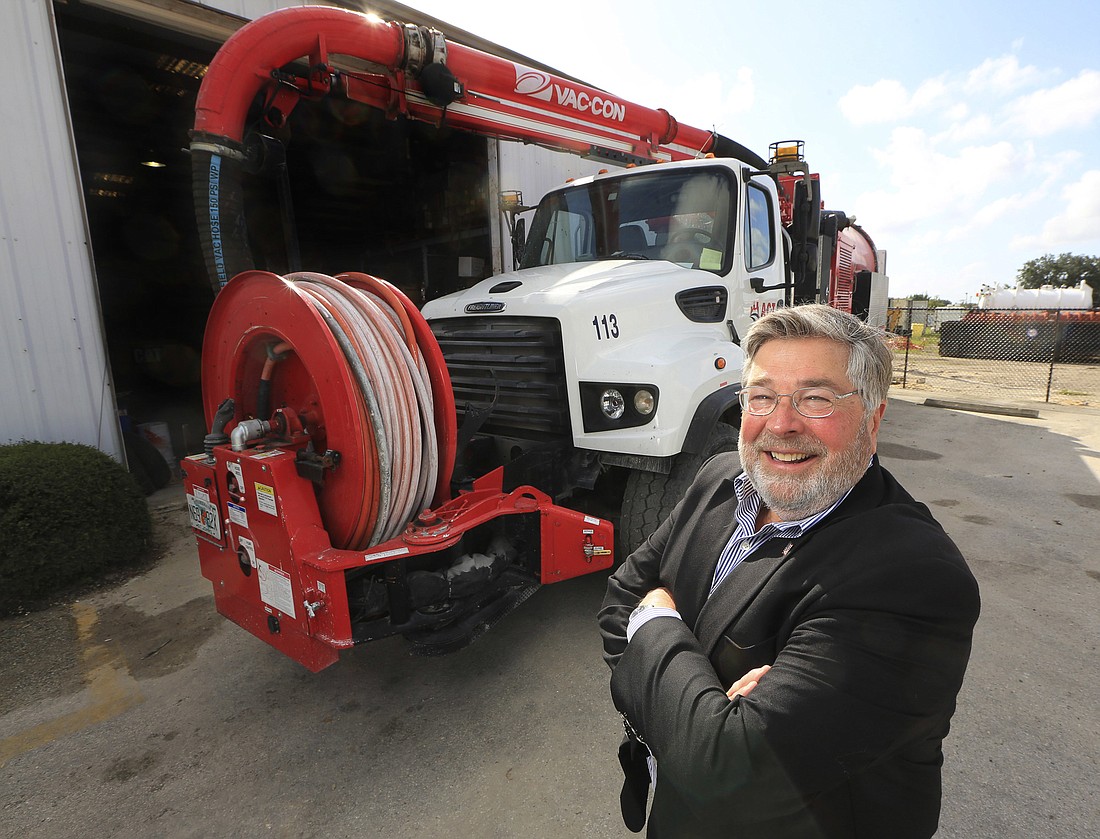Rob Kincart has been a chemist for 46 years and a business owner for 38 years — a symbiotic relationship. “Being a chemist,” he says, “teaches all the skills to be a business manager.”
Both, for instance, require meticulous accounting.
“Instead of balancing a ledger with dollars, in chemistry it’s balancing the atom. If you don’t balance it right, it blows up,” Kincart says. “Same with business: If you don’t balance it right, it blows up.”
Kincart, 69, of Lakeland, is president of American Compliance Technologies, which he founded in in 1987 in Bartow to meet a growing need for expertise in complying with environmental regulations. Three decades later, ACT still provides expertise in regulatory compliance.
But the business, in a shift to meet demand and diversify its services, also offers environmental, engineering and field services, industrial hygiene, handling and transport of hazardous materials, waste management and health and safety training through its “ACT University.”
“Do something no one else wants to do, you’ll always have a job.’ Rob Kincart, American Compliance Technologies
ACT now has six Florida branch offices and a workforce of 85 to 100 “depending on workload,” Kincart says. He declines to disclose revenue figures, but anticipates sustained growth and to add about five new employees in coming months.
The company is also realizing with its diversified offerings it can be nimble for clients. In Hurricane Florence’s aftermath, for example, ACT’s “workload” included another service — crisis management — after dispatching 20 workers with 10 dump and industrial vacuum trucks to the Carolinas.
Kincart didn’t think about being his own boss growing up. “My father worked for AT&T,” he says. “The way I came up, you worked for a large company like your dad did.”
But after graduating in 1972 with a chemistry degree from the University of Florida, he entered his profession at a watershed time of environmental regulation. After beginning his career as a research chemist, Kincart assumed a management position with Kerr-McGee Chemical. While with Kerr-McGee in 1975, he volunteered with the Jacksonville Fire Department.
“They didn’t know what to do with chemicals,” he says. “When they had an incident with chemicals, they’d call me.”
Kincart’s JFD collaboration, he says, led to the creation of “the first hazmat team in the U.S.,” which “made me the country’s first hazmat chemist.”
Procedures he developed are still practiced today. “You don’t think it’s important while you’re doing it,” he says, “but looking back you see how we were doing something important.”
Several years later, while with UpJohn’s Asgrow, Kincart says he was “given responsibility for compliance with new regulations because no one else wanted to do it.”
Regulatory growth, in turn, made compliance a viable business — and Kincart saw an opportunity. But “management,” he says, “didn’t want to take chances.”
He opted out. “I wanted to control my own destiny,” he adds.
Kincart did that in 1980, when he co-founded Resource Recovery of America Inc. He and his partners sold it in 1987 and he established ACT by himself. “I wanted to build a better, faster, stronger company,” he says.
Compliance, now one of ACT’s specialties, is a tedious nuisance, but necessary. “Do something no one else wants to do, you’ll always have a job,” Kincart says. Besides, he adds, “I knew where everybody buried everything.”
On the business management side, in ACT’s early years, Kincart followed two rules: “Stay frugal and don’t incur debt.”
ACT also maintained “slow, conservative” growth, he says, while adding services and growing staff. “We grow to a plateau, then allow for it to equilibrate,” he says.
Kincart also wonders if this isn’t his biggest mistake. Like managers when he worked for another business, “I wish I had taken more chances,” he says. “I could have been much larger, or out of business.”
ACT’s biggest obstacle, meanwhile, at least to other area executives, is familiar. “Getting, keeping good employees is always difficult,” Kincart says, adding that “finding the right people” is critical for an emergency-response business.
“We have a diverse, talented crew — adrenaline junkies who love making chaotic situations better,” Kincart says. “It’s not for everyone. But if you have that inclination to respond to emergencies 24 hours a day, it’s rewarding.”
Finally, as a chemist, tackling problems through analytic process helps in charting business direction, but also in understanding that emotion — a chemical reaction — is necessary for success. “If you don’t have passion for your business, you won’t make it,” Kincart says. “You have to want it for a reason.”
(This story was updated to reflect the correct spelling of Rob Kincart.)






